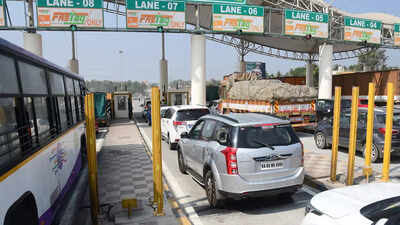FASTag-based Annual Pass announced! Road Transport and Highway Minister Nitin Gadkari on Wednesday announced the rollout of FasTag-based annual pass for users. The FASTag-based Annual Pass will cost users Rs 3,000, and will be effective from August 15, 2025. This pass, specifically created for private non-commercial vehicles including cars, jeeps, and vans, remains valid for either one year post-activation or 200 trips, depending on which milestone is reached first.The Annual Pass will facilitate efficient and economical travel on National Highways across India. Users will soon be able to activate and renew their passes through a dedicated section on the Rajmarg Yatra App and the official portals of NHAI and MoRTH, Gadkari said.This initiative offers a solution to the ongoing issues regarding toll plazas within 60 km distances and streamlines toll payments into one affordable transaction. The Annual Pass is designed to enhance the travel experience for numerous private vehicle owners by reducing queuing time, alleviating traffic congestion, and minimising disagreements at toll collection points.Currently, commuters who frequently pass through a specific toll plaza can obtain monthly passes by submitting address verification and relevant documentation. These passes cost Rs 340 monthly, totalling Rs 4,080 annually.The Union road transport minister Nitin Gadkari had earlier this year indicated that his ministry is developing plans for car owner passes. Ministry officials consider this as a comprehensive solution to address various challenges, including public opposition to toll plazas within city limits, toll stations positioned closer than 60 km apart, and incidents of aggression at collection points.Statistics indicate that of the total Rs 55,000 crore toll revenue in 2023-24, private cars contributed only Rs 8,000 crore. Analysis of toll transactions reveals that whilst private cars account for 53% of total passages, they generate just 21% of the revenue. Additionally, private vehicles constitute about 60% of traffic between 6 am to 10 pm, whereas commercial vehicles maintain steady movement throughout the day and night periods.











